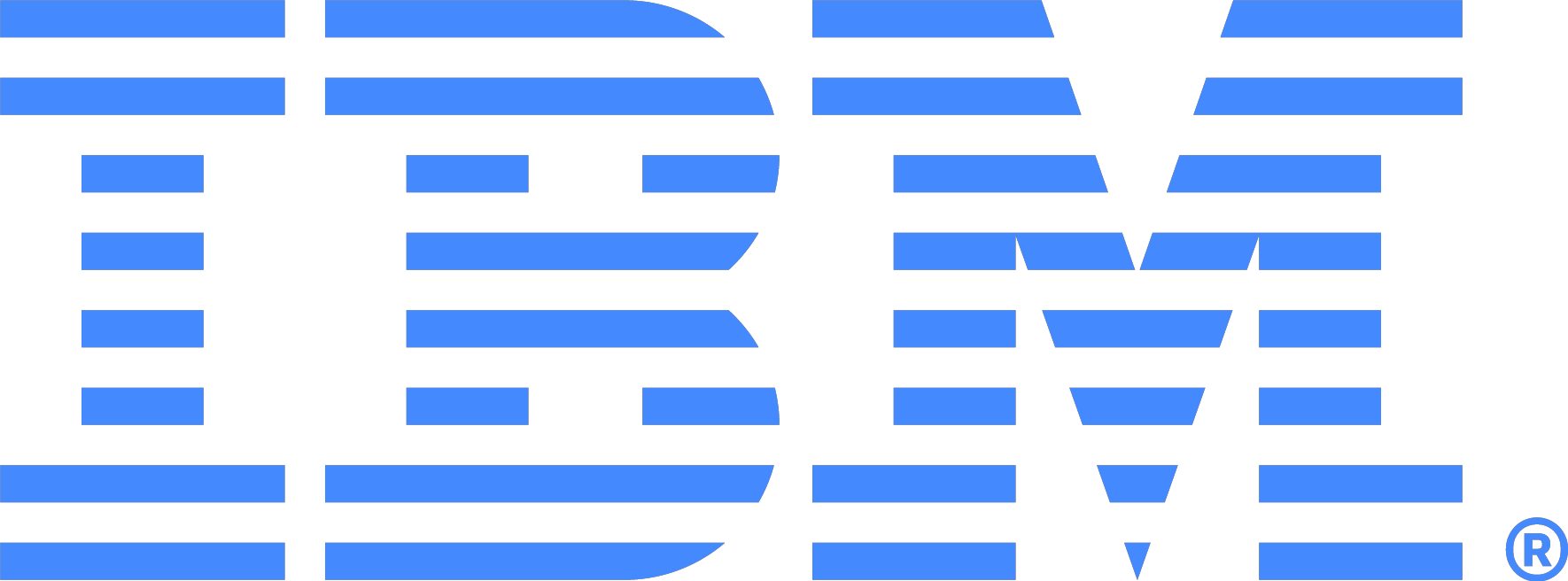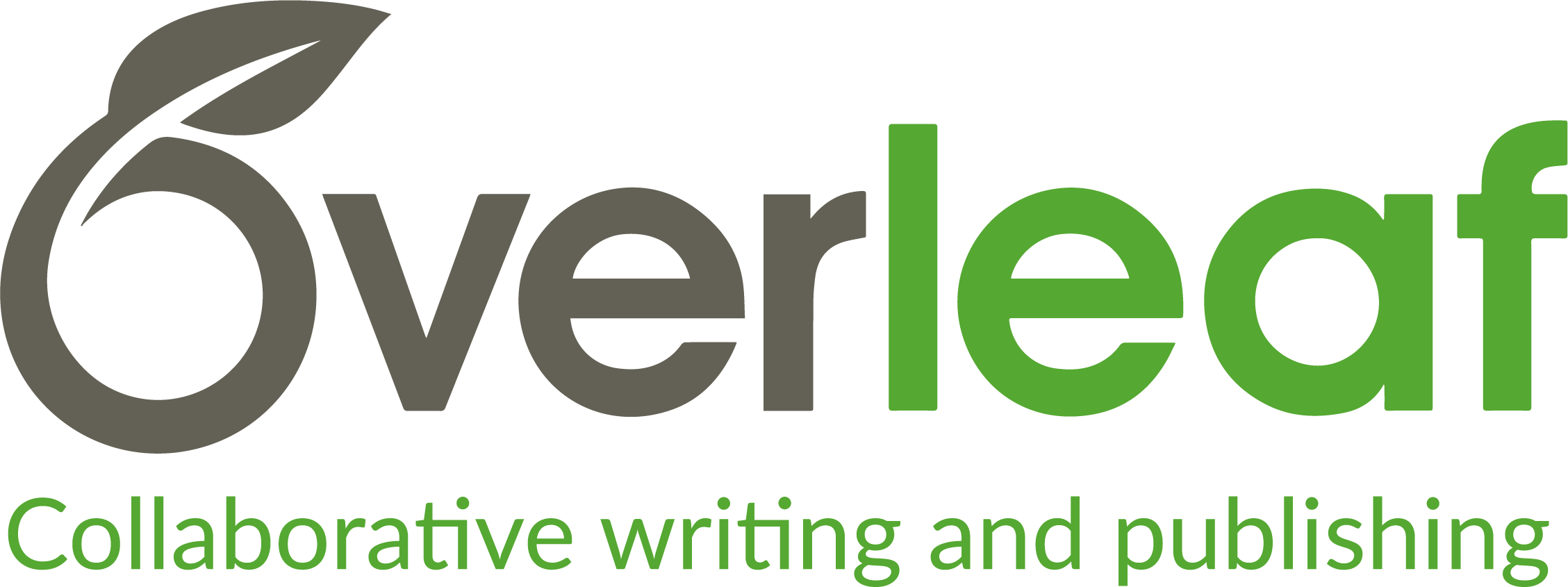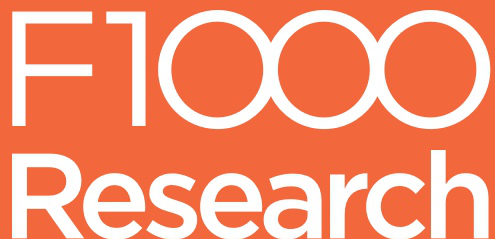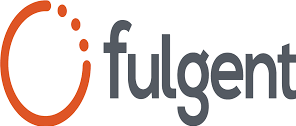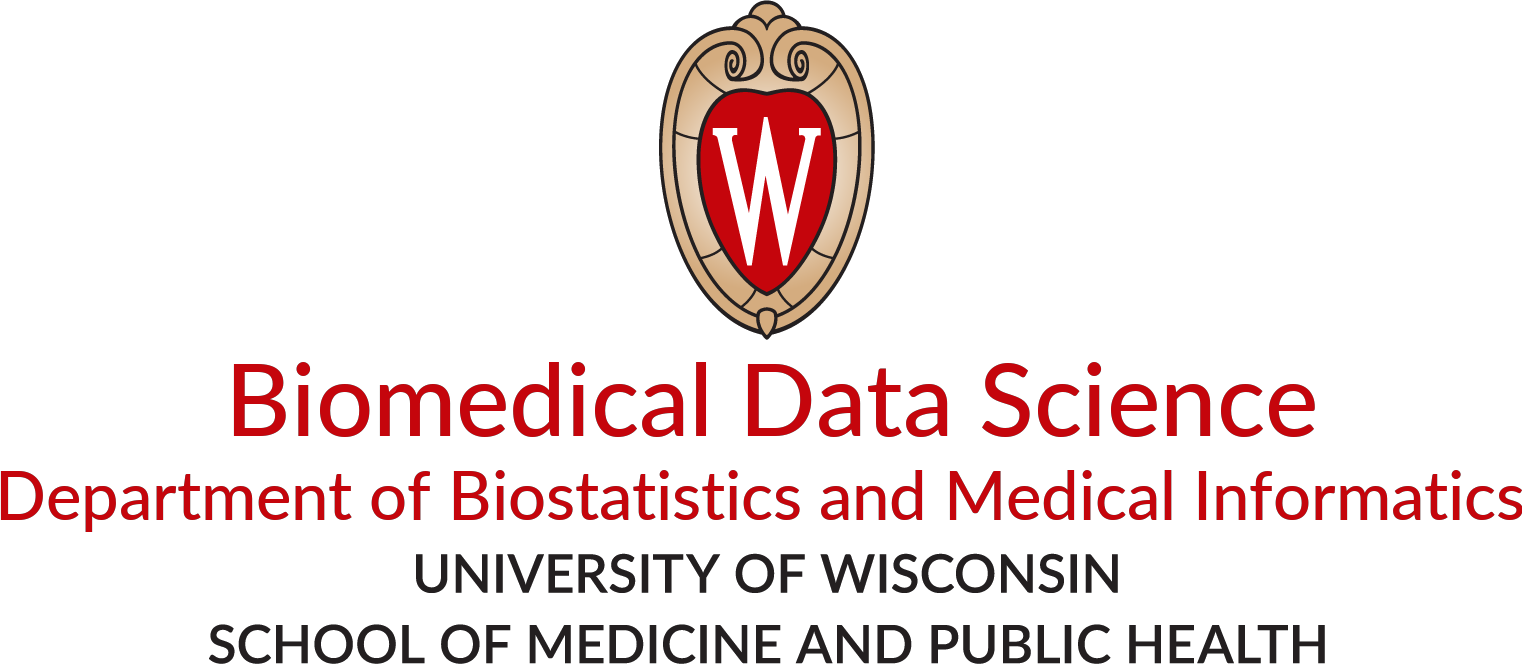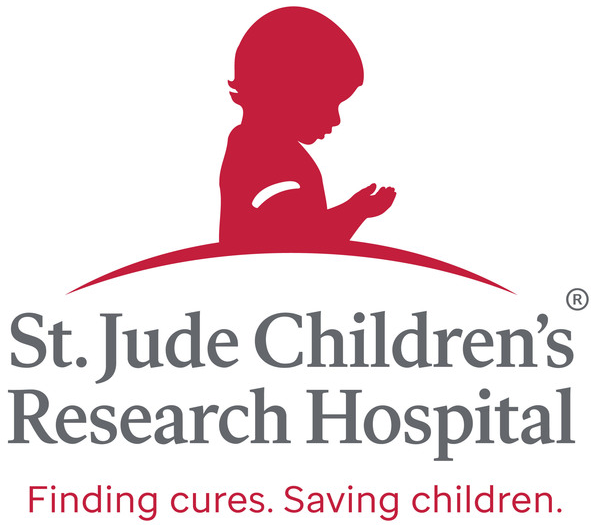Links in this page: Key Dates | Tracks: Communities of Special Interest (COSIs) | Deadlines | Submission Guidelines | Review Criteria | Poster details for ISMB | FAQ
We invite abstracts for research that is topical to bioinformatics and computational biology, which is in progress (unpublished, formerly Late-Breaking Research) or previously published within the last 18 months (previously Highlights Track) for consideration for oral and/or poster presentation.
Your abstract should be submitted to the Communities of Special Interest (COSI) Track that most accurately reflects the area of the work. (You will have the option to identify two other COSI tracks that may also be suited to your research area during your submission). You can learn more about COSIs here.
Talks and posters are organized according to scientific topics which are covered by the COSIs listed below. Please note, abstracts are not limited to COSI topics and if the topic of your submission falls outside the listed COSIs you can choose the "General Computational Biology" area. Your abstract should convey a scientific result and should not be an advertisement for any commercial software package.
Multiple talks: The same talk is not permitted to be given more than once as an oral presentation at ISMB 2022. Research may presented as both a talk and poster. Having the same person deliver two (or more) different talks is possible (and not prohibited), but it is not encouraged. This allows for many people from one lab to present the work of the lab. A presenting author may present more than one poster although not in the same Poster session we encourage labs to involve multiple attendees.
All presentations for ISMB 2022 will presented live regardless if you are participating in-person from Madison or virtually. While many presenters will be in-person in Madison, those unable to travel will be presented live stream (zoom) and presented live through the conference platform and streamed into the Madison presentation room.
All presenters will be required to provide a pre-recorded talk for the virtual platform library in advance of the conference. The pre-recorded talk will be available shortly after the live presentation to provide faster and more seamless access to the conference content for virtual participants.
Any recent research, published or unpublished is eligible for submission and should be received by April 21, 2022. Acceptance notifications will be sent no later than Thursday, May 12, 2022. The conference will accept late posters abstracts beginning April 25, 2022.
Poster only submissions DO NOT require any materials to be uploaded. Submissions are evaluated on the 200 word text abstract provided during submission.
Tracks: Communities of Special Interest (COSIs)
3DSIG • Bio-Ontologies • BIOINFO-CORE • BioVis • BOSC: Bioinformatics Open Source Conference • CAMDA • CompMS • Education • Evolution and Comparative Genomics • Function • HitSeq • iRNA • MLCSB • MICROBIOME • NetBio • RegSys • SysMod • Text Mining • TransMed • VarI • General Computational Biology • Equity-focused Research • Special Session: Computational Immunology (Poster Only) • Special Session: Digital Agriculture (Posters Only) • Special Session: Genome Privacy and Security • Sustainability research in computational biology - Posters Only
| 3DSIG: Structural Bioinformatics and Computational Biophysics Abstract Area Chairs: Douglas Pires, The University of Melbourne, Australia Rafael Najmanovich, Université de Montreal, Canada |
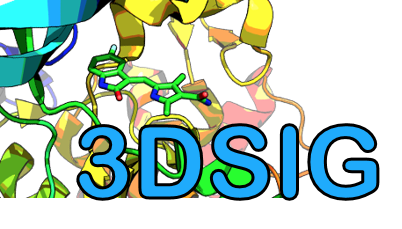 It is impossible to fully understand biological systems without understanding the 3D structure of their constituting parts and their interactions. As such the topics relevant for 3DSIG are wide and include, but are not restricted to Structure-based drug discovery including polypharmacology and network pharmacology; Structure representation, classification and prediction; It is impossible to fully understand biological systems without understanding the 3D structure of their constituting parts and their interactions. As such the topics relevant for 3DSIG are wide and include, but are not restricted to Structure-based drug discovery including polypharmacology and network pharmacology; Structure representation, classification and prediction; |
| Bio-Ontologies Abstract Area Chairs: Tiffany Callahan, Columbia University, United States Robert Hoehndorf, King Abdullah University of Science and Technology, Saudi Arabia Learn more about the Bio-Ontologies here |
 Bio-Ontologies Community of Special Interest Group (COSI) covers the latest and most innovative research in the application of ontologies, Bio-Ontologies Community of Special Interest Group (COSI) covers the latest and most innovative research in the application of ontologies,the organisation and dissemination of knowledge, and the development and application of knowledge-based methods in biomedicine and life sciences. |
| BioInfo-Core Abstract Area Chairs: Madelaine Gogol, Stowers Institute, United States Rodrigo Ortega Polo, Agriculture and Agri-Food Canada Alberto Riva, University of Florida, United States Learn more about Bioinfo-core here |
 Bioinfo-core is a worldwide body of people that manage or staff bioinformatics cores within organizations of all types including academia, academic medical centers, medical schools, biotechs and pharmas. Bioinfo-core is a worldwide body of people that manage or staff bioinformatics cores within organizations of all types including academia, academic medical centers, medical schools, biotechs and pharmas. |
| BioVis: Biological Data Visualization Abstract Area Chairs: Jan Byska, Masaryk University, Czech Republic and University of Bergen, Norway Heba Sailem, University of Oxford, United Kingdom Qianwen Wang, Harvard University, United States Learn more about the BioVis COSI here |
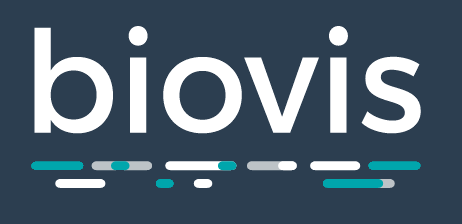 The BioVis track aims to educate, inspire, and engage bioinformatics and biology researchers in state-of-the-art visualization research and visualization researchers in problems in biological data visualization. The BioVis track aims to educate, inspire, and engage bioinformatics and biology researchers in state-of-the-art visualization research and visualization researchers in problems in biological data visualization. |
| BOSC: Bioinformatics Open Source Conference Abstract Area Chairs: Nomi L. Harris (Chair), Lawrence Berkeley National Laboratory, United States Karsten Hokamp, Trinity College Dublin, Ireland Hervé Ménager, Institut Pasteur, France Monica Munoz-Torres, University of Colorado Anschutz Medical Campus, United States Deepak Unni, European Molecular Biology Laboratory, Heidelberg, Germany Nicole Vasilevsky, University of Colorado Anschutz Medical Campus, United States Jason Williams, Cold Spring Harbor Laboratory, United States Peter Cock (ex officio, Open Bioinformatics Foundation (OBF), United Kingdom Learn more about BOSC here |
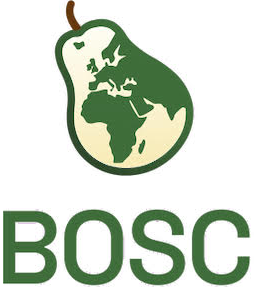 BOSC covers all aspects of open science / open source bioinformatics, including standards and ontologies; approaches that promote open science and sharing of data, results and software; bioinformatics tools and libraries; and ways to grow open source communities while promoting diversity within them. BOSC covers all aspects of open science / open source bioinformatics, including standards and ontologies; approaches that promote open science and sharing of data, results and software; bioinformatics tools and libraries; and ways to grow open source communities while promoting diversity within them. |
| CAMDA: Critical Assessment of Massive Data Analysis Abstract Area Chairs: Joaquin Dopazo, Fundación Progreso y Salud, Spain David Kreil, Boku University Vienna, Austria Paweł P Łabaj, Austrian Academy of Sciences, and Jagiellonian University, Poland Wenzhong Xiao, Harvard Medical School, United States (PLEASE note: CAMDA submitters should include a 3-5 page long abstract PDF) Learn more about the CAMDA COSI here. |
 The large, complex data sets for the Critical Assessment of Massive Data Analysis (CAMDA) contest include built-in truths for calibration. In an open-ended competition, however, both seasoned researchers and cunning students push the boundaries of our field, with unexpected questions or angles of approach often bringing the most impressive advances. The large, complex data sets for the Critical Assessment of Massive Data Analysis (CAMDA) contest include built-in truths for calibration. In an open-ended competition, however, both seasoned researchers and cunning students push the boundaries of our field, with unexpected questions or angles of approach often bringing the most impressive advances. |
| CompMS: Computational Mass Spectrometry Abstract Area Chairs: Wout Bittremieux, University of California San Diego, United States Isabell Bludau, Max Planck Institute of Biochemistry, Germany Lindsay Pino, Talus Bio, United States Timo Sachsenberg, University of Tübingen, Germany Learn more about the CompMS COSI here. |
 The CompMS group promotes the efficient, high quality analysis of mass spectrometry data. The CompMS initiative covers various computational mass spectrometry application domains, including proteomics, metabolomics, and lipidomics. The CompMS group promotes the efficient, high quality analysis of mass spectrometry data. The CompMS initiative covers various computational mass spectrometry application domains, including proteomics, metabolomics, and lipidomics. |
| Education: Computational Biology Education Abstract Area Chair: Wai Keat Yam, International Medical University, Malaysia Learn more about the Education COSI here. |
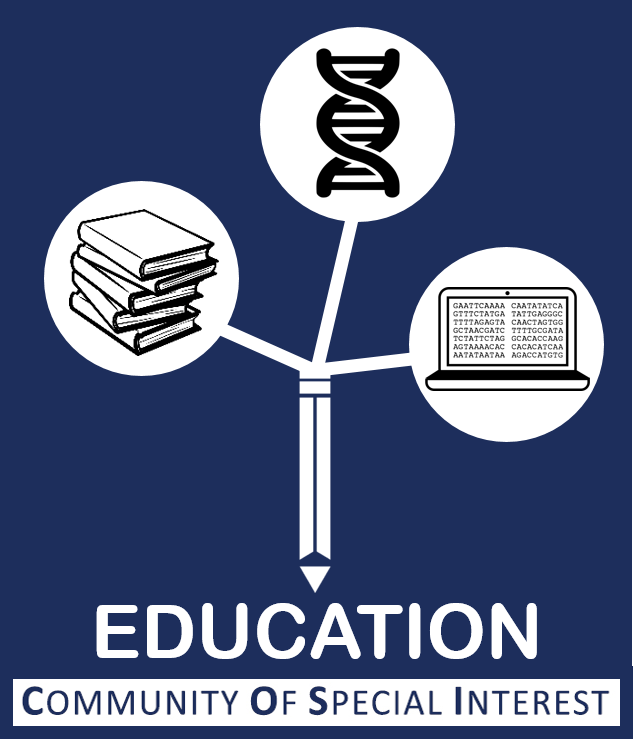 Education-COSI focuses on bioinformatics and computational biology education and training across the life sciences. Education-COSI focuses on bioinformatics and computational biology education and training across the life sciences. |
| Evolution and Comparative Genomics Abstract Area Chairs: Edward Braun, University of Florida, United States Wataru Iwasaki, University of Tokyo, Japan Giltae Song, Pusan National University, Korea Learn more about the EvolCompGen COSI here |
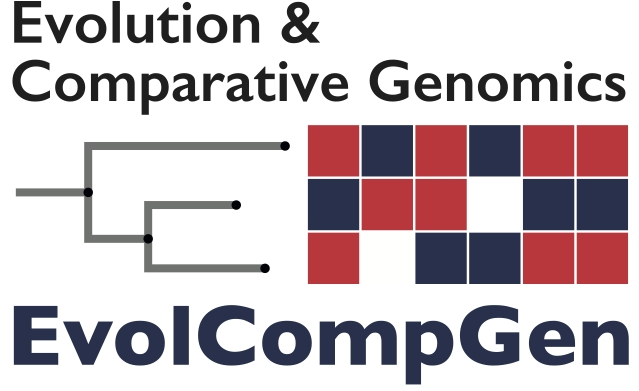 Evolution and comparative genomics are deeply intertwined with computational biology. Computational evolutionary methods, such as phylogenetic inference methods or multiple sequence alignment are widely used, yet remain far from “solved” and are indeed intense areas of research. Evolution and comparative genomics are deeply intertwined with computational biology. Computational evolutionary methods, such as phylogenetic inference methods or multiple sequence alignment are widely used, yet remain far from “solved” and are indeed intense areas of research. |
| Function: Gene and Protein Function Annotation Abstract Area Chairs: Dukka KC, Michigan Technological University, United States Iddo Friedberg, Iowa State University, United States Kim Reynolds, University of Texas Southwestern Medical Center, United States Mark Wass, University of Kent, United Kingdom Learn more about the Function COSI here |
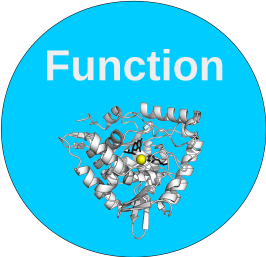 The mission of the Function Community of Special Interest (Function-COSI) is to bring together computational biologists, experimental biologists, biocurators, and others who are dealing with the important problem of gene and gene product function prediction, to share ideas and create collaborations. The mission of the Function Community of Special Interest (Function-COSI) is to bring together computational biologists, experimental biologists, biocurators, and others who are dealing with the important problem of gene and gene product function prediction, to share ideas and create collaborations. |
| HitSeq: High-throughput Sequencing Abstract Area Chairs: Can Alkan, Bilkent University, Turkey Christina Boucher, University of Florida, United States Ana Conesa, University of Florida, United States Francisco M. De La Vega, Stanford University, United States Dirk Evers, Dr. Dirk Evers Consulting, Germany Birte Kehr, Universitätsklinikum Regensburg, Germany Kjong Lehmann, ETH-Zürich, Switzerland Learn more about the HiTSeq COSI here |
 HiTSeq is a community of special interest devoted to the latest advances in computational techniques for the analysis of high-throughput sequencing (HTS) data. Sessions will be devoted to discussing the latest advances in computational techniques for the analysis of high-throughput sequencing (HTS) datasets and will provide a forum for in-depth presentations of the methods and discussions among the academic and industry scientists working in this field. HiTSeq is a community of special interest devoted to the latest advances in computational techniques for the analysis of high-throughput sequencing (HTS) data. Sessions will be devoted to discussing the latest advances in computational techniques for the analysis of high-throughput sequencing (HTS) datasets and will provide a forum for in-depth presentations of the methods and discussions among the academic and industry scientists working in this field. |
| iRNA: Integrative RNA Biology Abstract Area Chairs: Yoseph Barash, University of Pennsylvania, United States Klemens Hertel, UC Irvine, United States Athma Pai, University of Massachusetts Medical School, United States Michelle Scott, University of Sherbrooke, Canada Learn more about the iRNA COSI here |
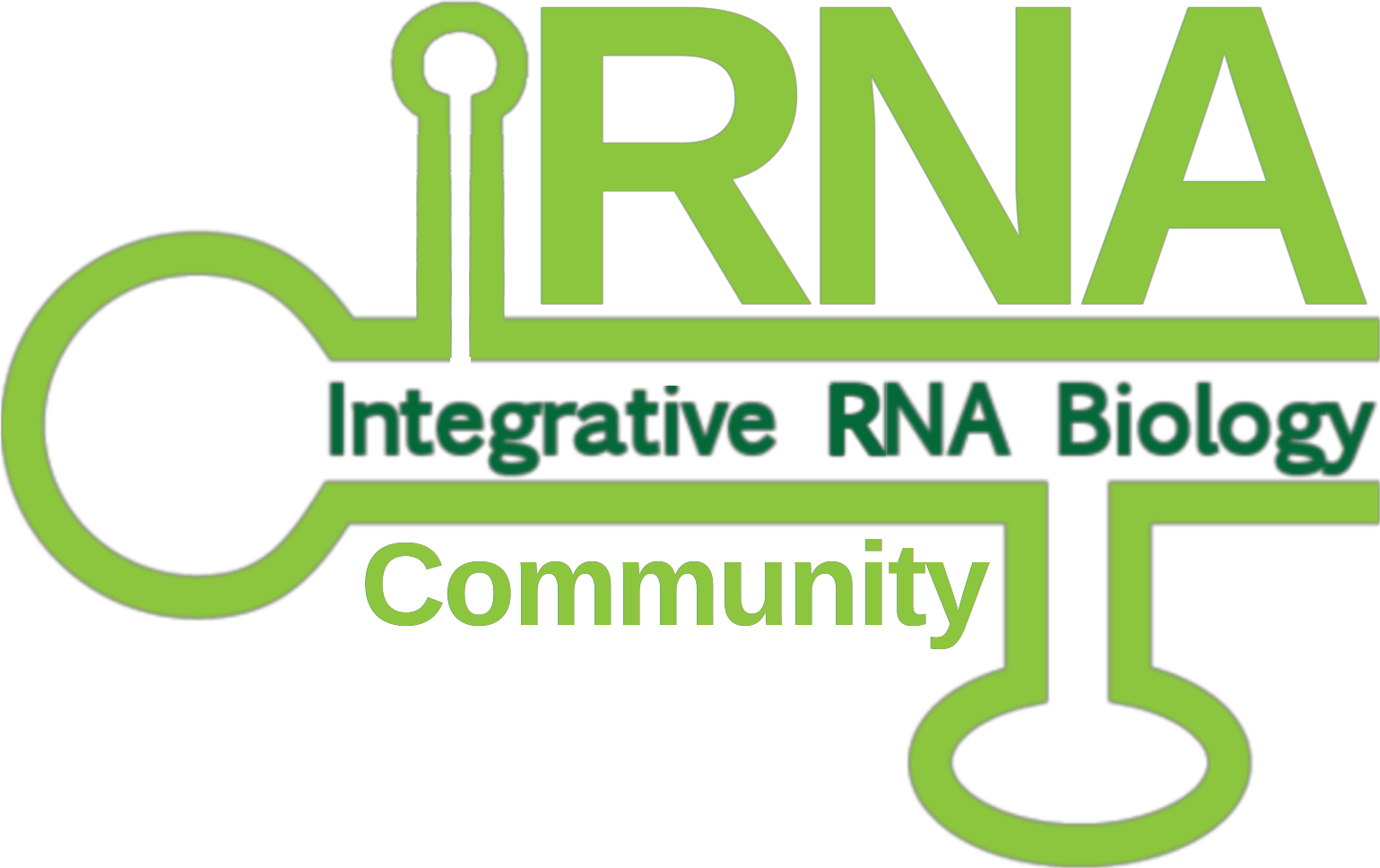 iRNA track covers the full range of research topics in the field of RNA Biology, from computational and high-throughput experimental methods development to their application in different aspects of RNA processing, structure, and function. iRNA track covers the full range of research topics in the field of RNA Biology, from computational and high-throughput experimental methods development to their application in different aspects of RNA processing, structure, and function. |
| MLCSB: Machine Learning in Computational and Systems Biology Abstract Area Chairs: Catalina Vallejos, The University of Edinburgh, United Kingdom Marinka Zitnik, Harvard University, United States Learn more about the MLCSB COSI here |
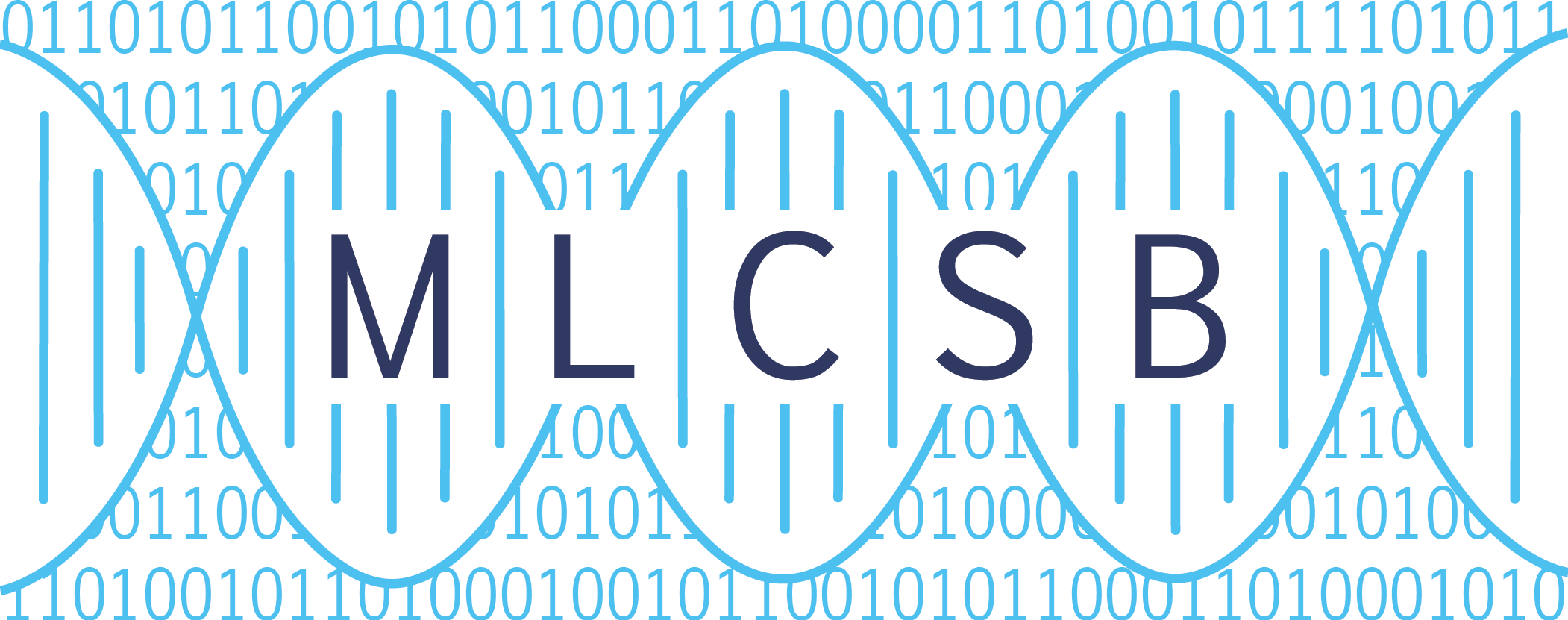 Systems Biology and Machine Learning meet in the MLCSB COSI. The community is the place for researchers of these areas to exchange ideas, interact and collaborate. Systems Biology and Machine Learning meet in the MLCSB COSI. The community is the place for researchers of these areas to exchange ideas, interact and collaborate. |
| MICROBIOME Abstract Area Chair: Zhong Wang, Lawrence Berkeley National Laboratory, United States Learn more about the MICROBIOME COSI here |
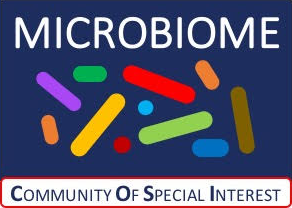 The MICROBIOME Community of Special Interest aims at the advancement and evaluation of computational methods in microbiome research, especially metaomic approaches. Based on the Critical Assessment of Metagenome Interpretation (CAMI), the COSI supplies users and developers with exhaustive quantitative data about the performance of methods in relevant scenarios. The MICROBIOME Community of Special Interest aims at the advancement and evaluation of computational methods in microbiome research, especially metaomic approaches. Based on the Critical Assessment of Metagenome Interpretation (CAMI), the COSI supplies users and developers with exhaustive quantitative data about the performance of methods in relevant scenarios. |
| NetBio: Network Biology Abstract Area Chair: Martina Kutmon, Maastricht University, Netherlands Learn more about the NetBio COSI here |
 As large scale, systems-level data are becoming increasingly available, modeling and analyzing them as networks is widespread. Network Biology Community serves to introduce novel methods and tools, identify best practices and highlight the latest research in the growing and interdisciplinary field of network biology. As large scale, systems-level data are becoming increasingly available, modeling and analyzing them as networks is widespread. Network Biology Community serves to introduce novel methods and tools, identify best practices and highlight the latest research in the growing and interdisciplinary field of network biology. |
| RegSys: Regulatory and Systems Genomics Abstract Area Chairs: Shaun Mahony, Penn State University, United States Anthony Mathelier, University of Oslo, Norway Alejandra Medina-Rivera, National Autonomous University of Mexico Learn more about the RegSys COSI here |
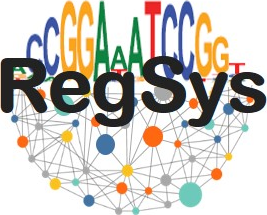 Regulatory genomics involves the study of the genomic control system, which determines how, when and where to activate the blueprint encoded in the genome. Regulatory genomics is the topic of much research activity worldwide. Since computational methods are important in the study of gene regulation, the RegSys COSI meeting focuses on bioinformatics for regulatory genomics. Regulatory genomics involves the study of the genomic control system, which determines how, when and where to activate the blueprint encoded in the genome. Regulatory genomics is the topic of much research activity worldwide. Since computational methods are important in the study of gene regulation, the RegSys COSI meeting focuses on bioinformatics for regulatory genomics. |
| SysMod: Computational Modeling of Biological Systems Abstract Area Chairs: Andreas Dräger, University of Tübingen, Germany Reihaneh Mostolizadeh, University of Tübingen, Germany Anna Niaraki, Université d’Évery, France Bhanwar Puniya, University of Nebraska-Lincoln, United States
Learn more about the SysMod COSI here |
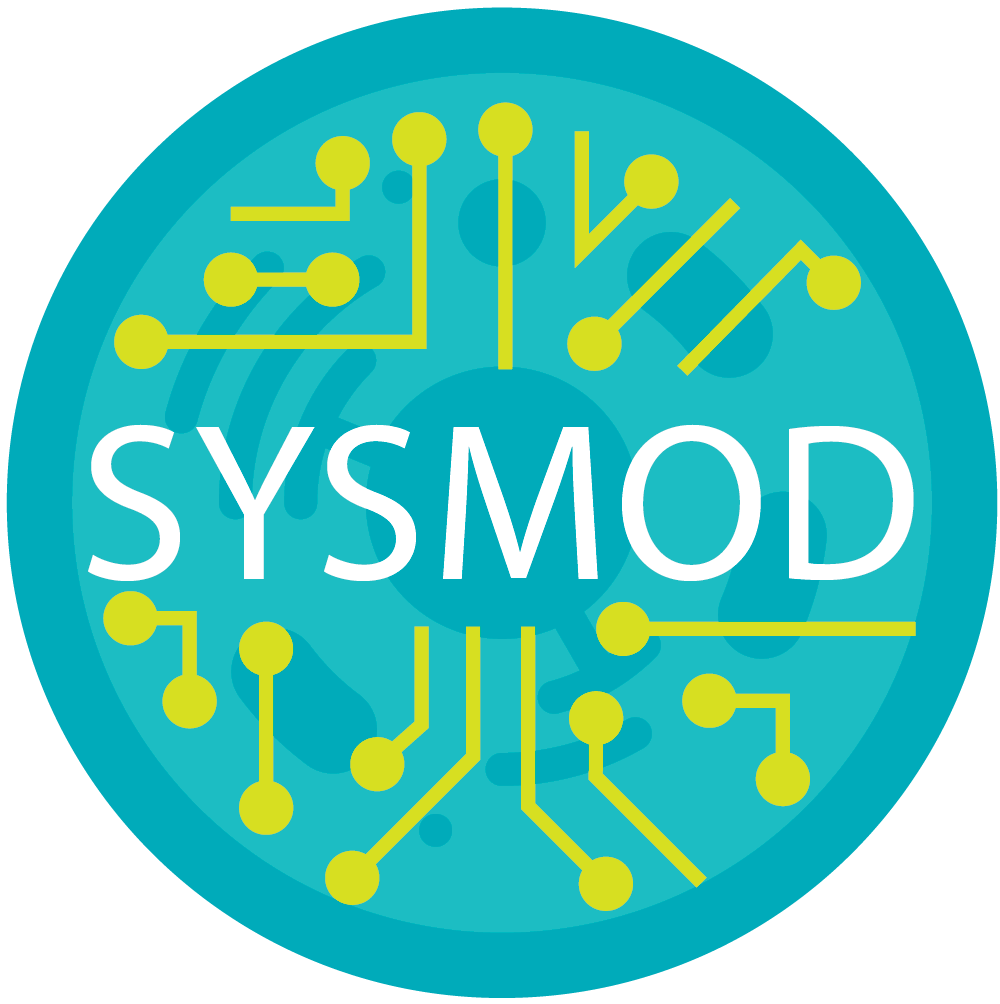 The Computational Modeling of Biological Systems (SysMod) aims to create a forum for systems modelers and bioinformaticians to discuss common research questions and methods. The session will focus on the conjoint use of mathematical modeling and bioinformatics to understand biological systems functions and dysfunctions. The Computational Modeling of Biological Systems (SysMod) aims to create a forum for systems modelers and bioinformaticians to discuss common research questions and methods. The session will focus on the conjoint use of mathematical modeling and bioinformatics to understand biological systems functions and dysfunctions. |
| Text Mining: Text Mining for Healthcare and Biology Abstract Area Chairs: Cecilia Arighi, University of Delaware, United States Lars Juhl Jensen, University of Copenhagen, DenmarkRobert Leaman, NCBI/NLM/NIH, United States Zhiyong Lu, NCBI/NLM/NIH, United States Learn more about the Text Mining COSI here |
 The Text Mining COSI brings together researchers that create text mining tools with researchers who use text mining tools to make new discoveries. Our community discussions include both text mining use cases - concrete problems and applications in the biological/biomedical domain - and methodology development. The Text Mining COSI brings together researchers that create text mining tools with researchers who use text mining tools to make new discoveries. Our community discussions include both text mining use cases - concrete problems and applications in the biological/biomedical domain - and methodology development. |
| TransMed: Translational Medical Informatics Abstract Area Chairs: Sanne Abeln, Vrije Universiteit Amsterdam, Netherlands Irina Balaur, University of Luxembourg Wei Gu, University of Luxembourg Heba Sailem, University of Oxford, United Kingdom Learn more about the TransMed COSI here. |
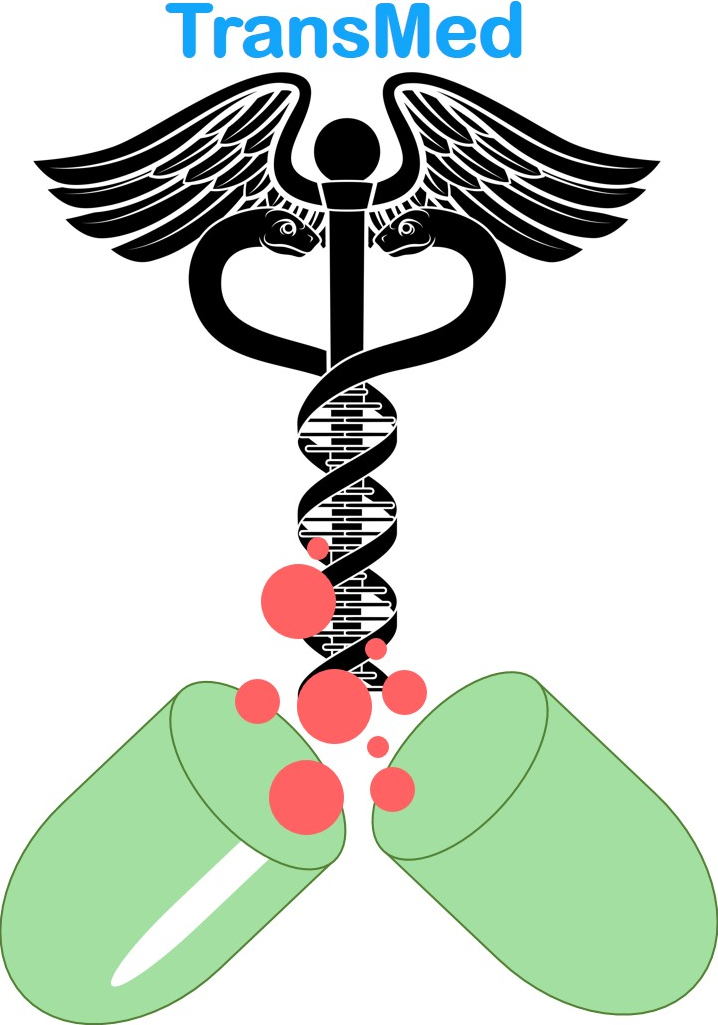 TransMed covers the current developments in the field of clinical and translational medicine informatics. Analysis of large amounts of multi-omics, imaging (medical and molecular), mobile sensor, clinical and health records data is paving the way for precision medicine. In the TransMed track, we will explore the current status of computational biology and advance machine learning approaches within the field of clinical and translational medicine. TransMed covers the current developments in the field of clinical and translational medicine informatics. Analysis of large amounts of multi-omics, imaging (medical and molecular), mobile sensor, clinical and health records data is paving the way for precision medicine. In the TransMed track, we will explore the current status of computational biology and advance machine learning approaches within the field of clinical and translational medicine. |
| VarI: Variant Interpretation Abstract Area Chairs: Emidio Capriotti, University of Bologna, Italy Hannah Carter, University of California, San Diego, United States Antonio Rausell, Imagine Institute for Genetic Diseases, France Learn more about the VarI COSI here |
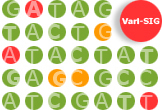 The VarI COSI meeting is dedicated to the recent advances in the analysis and interpretation of the genetic variants. The VarI COSI meeting is dedicated to the recent advances in the analysis and interpretation of the genetic variants. |
| General Computational Biology Abstract Area Chairs: Xin Gao, King Abdullah University of Science and Technology, Saudi Arabia Sara Mostafavi, University of Washington, United States (If all other areas are insufficiently descriptive of your work, please submit to the area below. Please note that the submissions in this area can be moved, subject to chairs’ considerations.) |
Novel techniques in emerging areas of computational biology, including intersections with other fields. |
| Equity-focused Research (New for 2022) Abstract Area Chair: Casey Greene, University of Colorado’s Anschutz Medical Campus, United States |
This area is for research that examines issues of equity, representation, diversity, or other elements related to datasets, methods, or the field of computational biology at large. |
| Special Session: Computational Immunology – Posters Only Special Session Chair: Yuri Pritykin, Princeton University, United States |
The Special Session on Computational Immunology invites abstracts for poster presentations in all areas of computational immunology, including both development of computational methods for analysis of multi-dimensional data in immunology and data-driven studies addressing specific immunological questions of fundamental or translational importance. Topics could include but are not limited to: single-cell multi-omics to characterize immune cell heterogeneity and regulatory mechanisms of immune cell function; receptor-ligand interaction analysis; spatial genomics for studies of immune microenvironments and immune cell interactions; trajectory inference and lineage tracing in immune cells; T cell and B cell receptor repertoire profiling, reconstruction and analysis. |
| Special Session: Digital Agriculture – Posters Only Special Session Chairs: Jennifer L. Clarke, University of Nebraska-Lincoln, United States Noah Fahlgren The Donald Danforth Plant Science Center, United States Camilo Valdes, University of Nebraska-Lincoln, United States |
The Special Session on Digital Agriculture invites abstracts for research that is topical to the field of digital agriculture, from basic to applied sciences and including intersections with other fields. As such topics relevant for this Special Session include, but are not restricted to, genetics and genomics of agriculturally relevant species; plant and animal phenomics; AI/machine learning; image analysis; remote sensing; educational innovations; discoveries resulting from public-private partnerships; data sharing and FAIR data standards; biotechnology; and soil sciences. |
| Special Session: Genome Privacy and Security Special Session Chairs: Bonnie Berger, Massachusetts Institute of Technology, United States Hyunghoon Cho, Broad Institute of MIT and Harvard, United States |
This Special Session on Genome Privacy and Security looks at methods related to the protection of individualized genomic and medical information; privacy models. |
| Sustainability research in computational biology - Posters Only Session Chair: Ana Conesa, Spanish National Research Council (CSIC), Spain |
We encourage poster submissions in the area of sustainability research in computational biology. This could cover ways to reduce carbon emissions in computational biology, or describe tools and techniques to improve sustainability. Analyses of sustainability in our field would also be in scope. |
Submission Guidelines
The presenter should be identified during the submission process. Presenters of accepted abstracts are required to make the presentation themselves, and must register and pay to attend the conference.
Submitters may choose to have their submission reviewed for: talk and poster or poster only. If you select talk and poster and are unsuccessful for a talk your abstract will automatically be considered for a poster presentation. Submissions must be received by April 21, 2022.
During submission you will submit to the COSI track that most reflects your research area. You will have the option to identify two other COSI tracks that may also be suited to your research area during your submission.
- All abstracts must be submitted using the conference submission site by the abstract deadline: April 21, 2022 (You have until 11:59 p.m. Any Time Zone).
- Accepted abstracts (maximum 200 words) will be posted on the conference web site. For authors requesting a talk you should upload a long abstract of up to two (2) pages in PDF format during the submission process. *Do not submit more than two pages* It is best to check individual COSI websites for specific information regarding program goals and guidelines.
PLEASE note: CAMDA submitters should include a 3-5 page long abstract PDF - The 200 word abstract should be a brief and concise summary of the background/motivation for the study, method and result(s), as well as conclusion/statement of significance. The abstract is submitted through the EasyChair submission system. If you are submitting for a talk a PDF (2 pages maximum) can be uploaded to provide additional details including figures and graphics that support the main points of the abstract.
Your abstract must not contain your title/position or any personal information (e.g. affiliation). These details will be collected through the EasyChair submission system.
Selected Abstract talks will be presented in tracks that run in parallel at the conference. The length of a talk is determined by individual COSI tracks. Oral presentation schedules for abstracts will be announced after acceptance notifications directly by the COSI track organizers.
Review Criteria
All submissions will be evaluated by a program committee. Submitters may choose to have their submission reviewed for talk and poster or poster only. If you select talk and poster and are unsuccessful for a talk your abstract will automatically be considered for a poster.
Posters advertising commercial software will be rejected from this poster session and/or removed from the conference without notice. There is a separate space for such posters in the exhibition area. If you have an industry poster, contact
Poster Details
Scientific Research Exchange - Posters Presentation Hours
July 11 - 13, 2022 (Central Time Zone)
| Monday, July 11, 2022 | BioInfo-Core CAMDA CompMS |
Function General Computational Biology iRNA |
Special Session: Computational Immunology SysMod Text Mining |
| Tuesday, July 12, 2022 | CAMDA Education HiTSeq |
iRNA NetBio Special Session: Digital Agriculture |
Special Session: Genome Privacy TransMed VarI |
| Wednesday, July 13, 2022 | 3D-SIG Bio-Ontologies BioVis |
BOSC EvolCompGen HiTSeq |
Microbiome MLCSB RegSys |
Attention Poster Authors
Recommended poster size is 46" (116.84cm) wide x 45" (114.3cm) high.
Late Posters
The Call for Late Posters (opens April 25, 2022). Call for Late Posters closes May 19, 2022, 11:59 p.m. Any Time Zone.
Institutional Research
Not-for profit research institutes and universities are able to submit their research findings as part of the call for posters. This will be displayed with in the topic area of Institutional Research.
Reviews of fields or techniques
Individuals may choose to submit a poster presenting a review of a specific field or technique. These submissions do not need to contain original work from the author and are intended to be an introduction for individuals not familiar with the field or technique. These review are not meant to be advertisements (e.g. it is not acceptable that the poster is an advertisement for a book or other type of commercial publication)
FAQ
Can I submit more than one abstract?
Yes, but although having the same person deliver more than one talk is permitted, it is not encouraged. Also, although a poster presenter offer may present two posters (one in Poster Session A and one in Poster Session B), we encourage labs to involve multiple presenters.
Should I submit a PDF of my poster when completing my submission?
No, please only submit the poster abstract. In addition, all poster presenters will upload a Poster PDF and short 5-7 minute MP4 talk to the virtual conference platform beginning June 30, 2022.
Can previously accepted work be considered for a poster?
Yes, we do ask that you note the year the work was published and provide the Digital Object Identifier (DOI) during the submission process.






